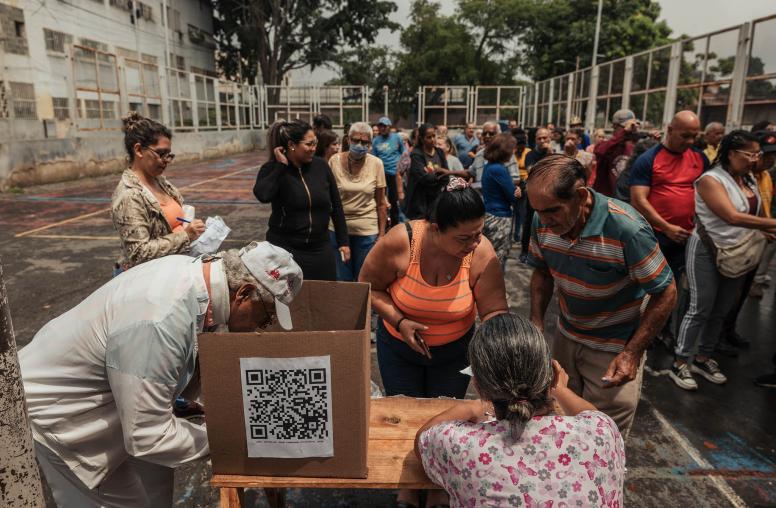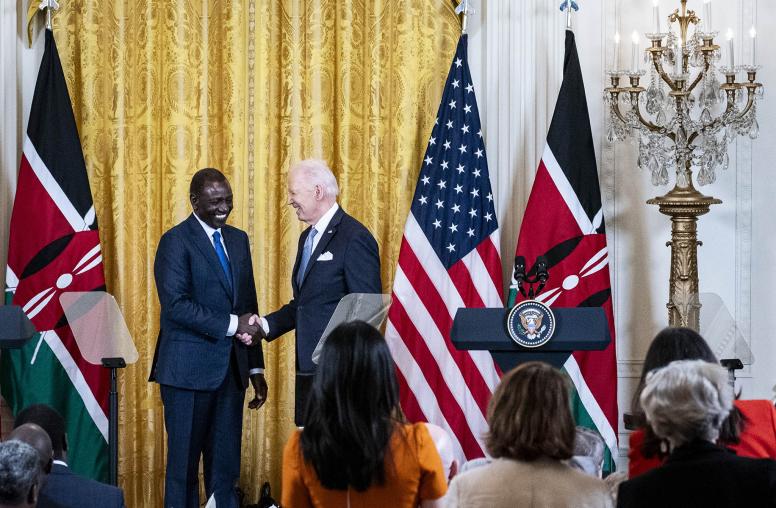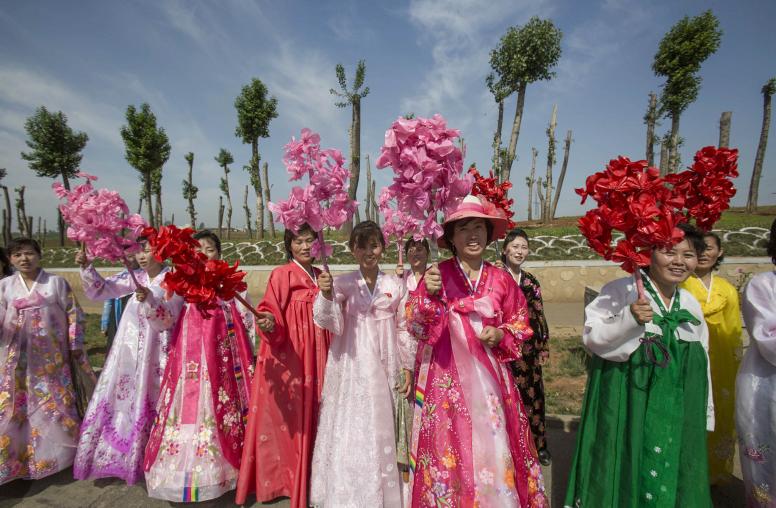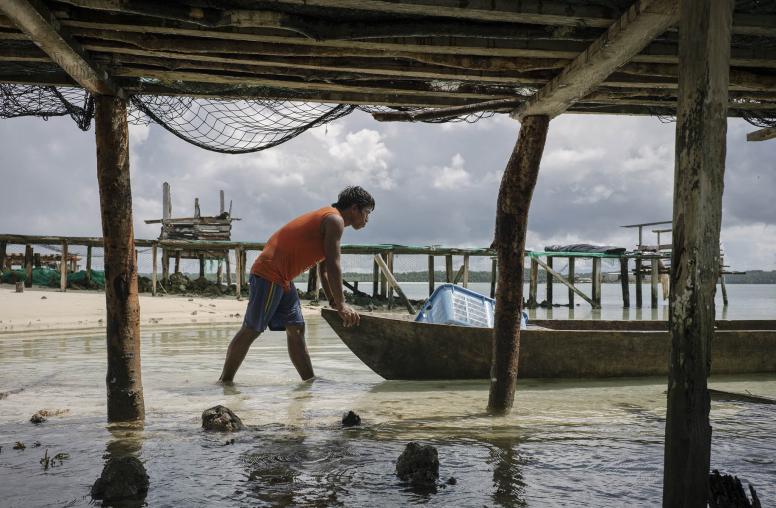Publications
Articles, publications, books, tools and multimedia features from the U.S. Institute of Peace provide the latest news, analysis, research findings, practitioner guides and reports, all related to the conflict zones and issues that are at the center of the Institute’s work to prevent and reduce violent conflict.

¿Puede Bolivia evitar una nueva oleada de violencia electoral en 2025?
Cuando el candidato de izquierda Luis Arce ganó las elecciones de Bolivia en 2020, muchos esperaban que el país finalmente pudiera entrar en un período de estabilidad y paz. La sorprendentemente pacífica transferencia de poder se produjo después de uno de los períodos más tumultuosos de la historia política reciente de Bolivia. El presidente Evo Morales, un líder indígena de izquierda, habia sido derrocado en 2019 después de protestas masivas y acusaciones de fraude electoral, seguidas por la controvertida presidencia interina de Jeanine Añez y las violentas y a veces letales protestas contra su gobierno, junto con la pandemia de COVID-19 en 2020. Cuando el moderado tecnócrata Arce ganó con una abrumadora victoria del 54% en la primera vuelta, se vio como un indicio que el país deseaba un semblante de unidad nacional y podría encontrar un espacio para sanar.

Argentina’s Milei Wants ‘Reconciliation’ with the Military
On March 24, Argentina’s presidency released a video aimed at providing what it called a “complete” vision of the country’s “National Day of Memory for Truth and Justice,” an annual holiday held on the anniversary of the 1976 coup d’etat that established the military regime that ruled the country until 1983.

Can Bolivia Avoid Renewed Election Violence in 2025?
When leftist candidate Luis Arce won Bolivia’s 2020 elections, many hoped that the country could finally enter a period of stabilization and peace. The surprisingly peaceful transfer of power came after one of the most tumultuous periods of recent Bolivian political history. President Evo Morales, a leftist indigenous leader, was ousted in 2019 after massive protests and electoral fraud allegations, followed by the controversial interim presidency of Jeanine Añez and the violent and sometimes lethal protests against her government, alongside the COVID-19 pandemic in 2020. When the moderate, technocrat Arce won with an overwhelming 54% victory in the first round, it was seen as an indicator the country wanted a degree of national unity and could find the space to heal.

Joseph Sany on the U.S. Withdrawal from Niger
The U.S. reached an agreement with Niger’s military junta to close two military bases in the country in what amounts to a “tactical setback” for counterterrorism efforts in the Sahel. But the closure also “forces the U.S. to review its military posture in the region,” says USIP’s Joseph Sany, adding “there may be other options.”

Cómo sacar a Venezuela de su ciclo de conflicto
Si la esperanza fuera una mercancía, estaría cotizándose alto en Venezuela actualmente. Desde que el enfoque internacional hacia la crisis venezolana se transformó de maximizar la presión sobre el régimen de Maduro mediante sanciones, amenazas y aislamiento diplomático hacia una solución negociada del conflicto, el pueblo venezolano ha permanecido firme en su determinación de llevar el proceso hasta una elección, ahora programada para el 28 de julio.

How to Get Venezuela Out of its Cycle of Conflict
If hope were a commodity, it would be trading high in Venezuela this season. Since the international approach to the Venezuelan crisis shifted from maximizing pressure on the Maduro regime through sanctions, threats and diplomatic isolation to a negotiated solution to the conflict, the Venezuelan people have remained firm in their determination to see the process through to an election, now set for July 28th.

What Does Further Expansion Mean for the Shanghai Cooperation Organization?
Last week, foreign ministers from member-states of the Shanghai Cooperation Organization (SCO) gathered in Astana, Kazakhstan. The nine-member SCO — made up of China, India, Russia, Pakistan, Iran, Kazakhstan, Kyrgyzstan, Tajikistan and Uzbekistan — represents one of the largest regional organizations in the world. And with the SCO’s annual heads-of-state summit slated for early July, the ministers’ meeting offers an important glimpse into the group’s priorities going forward. USIP’s Bates Gill and Carla Freeman examine how regional security made its way to the top of the agenda, China’s evolving role in Central Asia and why SCO expansion has led to frustrations among member states.

America’s Vital 21st-Century ‘Partnership With Africa’ — and Kenya’s Key Role
The state visit to Washington last week by Kenya’s President William Ruto provides a moment in which to assess not simply a major U.S. bilateral partnership in Africa, but the progress of the United States’ declared intent to build a strategic partnership with the continent overall. The U.S. government in 2022 declared that partnership vital to U.S. interests — a recognition of Africa’s rising economic potential and its inevitably central role in all efforts to build global stability and prosperity in this century. Former assistant secretary of state for Africa Johnnie Carson, now a senior advisor at USIP, assessed the visit and the progress in building that new, transatlantic partnership.

Changing North Korea’s Future Through Its Women
News reports over the past few years featuring Kim Jong Un’s sister, Kim Yo Jong, or his daughter, Kim Ju Ae, have led to speculation about a future North Korea ruled by a woman. This is an intriguing development worth monitoring, given the North Korean regime’s history of patrilineal succession. However, ordinary North Korean women may have a greater role to play in the future of the country.

Why Does China Still Care About Taiwan’s Allies?
In January of this year, Nauru switched recognition from Taiwan to China, reducing the number of Taiwan’s partners from 13 to 12. It did so two days after Taiwan’s presidential elections produced an outcome that was unwelcome in Beijing: four more years of the independence-leaning Democratic Progressive Party (DPP) in Taipei.